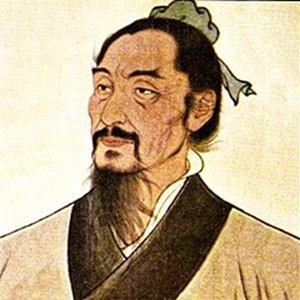顺天之意者,兼也;反天之意者,别也。兼之为道也,义正;别之为道也,力正。义正者何若?大不攻小也,强不侮弱也,众不贼寡也,诈不欺愚也,贵不傲贱也,富不骄贫也,壮不夺老也。
Embracing the will of Heaven is to love others just like loving oneself. Violating the will of Heaven is to treat others worse than treating yourself. Loving others equally is the right way of living and ruling. Treating others not fairly is to rule by violence. What is ruling by righteousness? The Big will not attack the Small; the Strong will not insult the Weak; the Majority will not harm the Minority; the Wise will not bully the Obtuse; the Noble will not despise the Lowly; the Rich will not peacock before the Poor; the Young will not overshadow the Aged.
立正长者 非高其爵,厚其禄,富贵佚而错之也。将以为万民兴利除害,富贵贫寡,安危治乱也。故古者圣王之为若此。
-《墨子-尚同中》
Purpose of Appointing High Officials
The purpose of appointing high officials in ancient times were not to raise their ranks and to increase their allowances so that they could live comfortable lives, but to let them seek benefits for the people, remove harms from the people, to bring wealth to the poor, to help the sparsely populated area become highly prosperous towns, to remove dangers and subdue rebellions. This was how the ancient sage kings governed the country.
 【註】墨子(公元前476或480年—公元前390或420年),名翟,春秋末期战国初期宋國人。宋国贵族目夷的后裔 ,曾担任宋国大夫 。中国古代思想家、教育家、科学家、军事家,墨家学派创始人和主要代表人物。墨子是墨家学说的创立者,提出了“兼爱”“非攻”“尚贤”“尚同”“天志”“明鬼”“非命”“非乐”“节葬”“节用”等观点,以兼爱为核心,以节用、尚贤为支点,创立了以几何学、物理学、光学为突出成就的一整套科学理论。墨家在先秦时期影响很大,与儒家并称“显学”。战国时期的百家争鸣,有“非儒即墨”之称。
【註】墨子(公元前476或480年—公元前390或420年),名翟,春秋末期战国初期宋國人。宋国贵族目夷的后裔 ,曾担任宋国大夫 。中国古代思想家、教育家、科学家、军事家,墨家学派创始人和主要代表人物。墨子是墨家学说的创立者,提出了“兼爱”“非攻”“尚贤”“尚同”“天志”“明鬼”“非命”“非乐”“节葬”“节用”等观点,以兼爱为核心,以节用、尚贤为支点,创立了以几何学、物理学、光学为突出成就的一整套科学理论。墨家在先秦时期影响很大,与儒家并称“显学”。战国时期的百家争鸣,有“非儒即墨”之称。
(原载《海外南开人》135期,11/27/2018出版)



